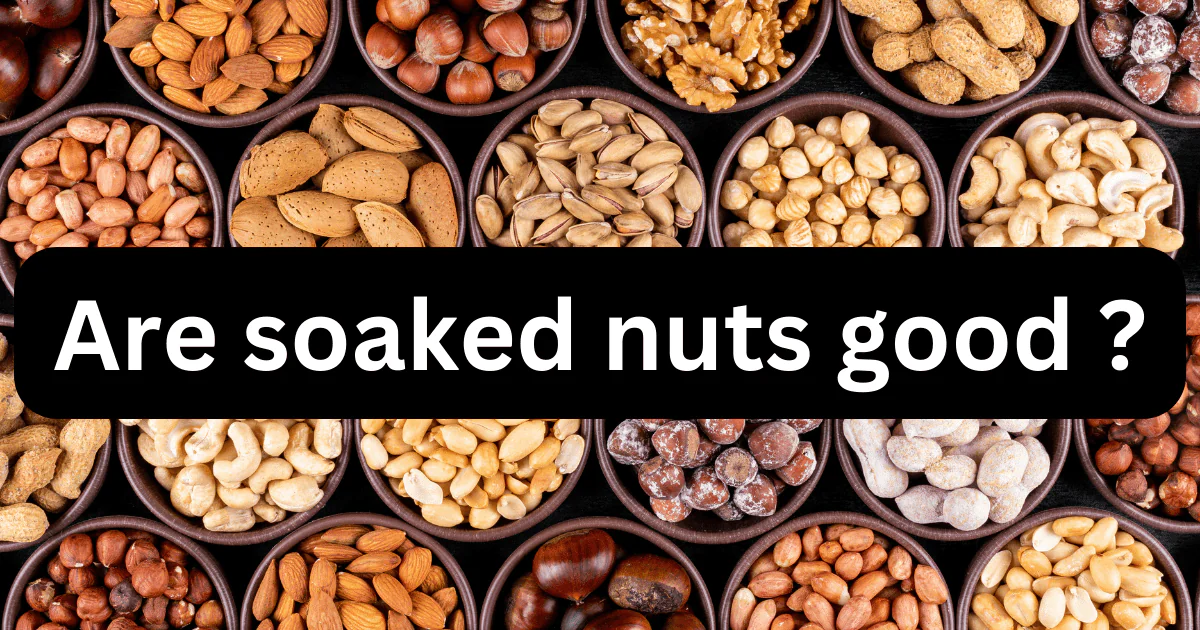The allure of skipping meals for weight loss
In the quest for weight loss, many individuals turn to skipping meals as a seemingly simple solution. The idea of cutting out entire meals from their daily routine may seem like a straightforward way to reduce calorie intake and shed unwanted pounds. However, this approach often proves to be a trap that can undermine long-term weight management goals.
Common misconceptions surrounding meal skipping
The notion of skipping meals is often fueled by misconceptions and misinformation. Some believe that it will boost their metabolism, while others perceive it as an easy way to create a significant calorie deficit. Unfortunately, these beliefs are not supported by scientific evidence and can lead to counterproductive outcomes.
Overview of the article’s objective
This article aims to explore the science behind sustainable weight management and debunk the myths surrounding meal skipping. We will delve into the intricate workings of metabolism, the impact of calorie balance, and the potential pitfalls of skipping meals. Furthermore, we will provide practical strategies for creating a personalized meal plan that supports long-term success without depriving the body of essential nutrients.
Understanding the Science Behind Weight Management
The role of metabolism
- Basal metabolic rate (BMR): Your basal metabolic rate (BMR) is the number of calories your body burns at rest to maintain essential functions like breathing, circulation, and temperature regulation. This rate accounts for a significant portion of your total daily energy expenditure.
- Thermic effect of food (TEF): The thermic effect of food (TEF) refers to the energy required by your body to digest, absorb, and metabolize the food you consume. This process can account for up to 10% of your total daily energy expenditure, depending on the composition of your diet.
The impact of calorie balance
- Calorie intake vs. calorie expenditure: Weight management boils down to the balance between the calories you consume and the calories you burn through metabolic processes and physical activity. To lose weight, you need to create a calorie deficit by either reducing your calorie intake or increasing your calorie expenditure through exercise, or a combination of both.
- The importance of maintaining a healthy deficit: While a calorie deficit is necessary for weight loss, it’s crucial to maintain a moderate and sustainable deficit. Severe calorie restriction can trigger adaptive responses in the body that slow down metabolism and make it harder to lose weight in the long run.
The Pitfalls of Skipping Meals
Metabolic slowdown
- The body’s adaptive response: When you skip meals, your body perceives it as a potential famine situation and responds by slowing down your metabolism to conserve energy. This adaptive response is a survival mechanism that can hinder your weight loss efforts.
- Decreased energy expenditure: By skipping meals, you may temporarily reduce your calorie intake, but you also decrease your body’s energy expenditure. This can lead to a slower metabolism, making it harder to create the necessary calorie deficit for sustainable weight loss.
Increased hunger and cravings
- Hormonal imbalances: Skipping meals can disrupt the balance of hormones responsible for regulating hunger and satiety, such as ghrelin and leptin. This hormonal imbalance can lead to increased hunger and cravings, making it more difficult to resist temptations and adhere to a healthy eating plan.
- Binge eating tendencies: When you deprive your body of food for extended periods, you may be more likely to experience intense hunger and cravings, which can lead to binge eating episodes. This pattern of restriction and overeating can create a vicious cycle that undermines your weight management efforts.
Nutrient deficiencies
- Lack of essential vitamins and minerals: By skipping meals, you risk missing out on essential vitamins, minerals, and other nutrients that are crucial for overall health and well-being. Nutrient deficiencies can lead to various health issues, including fatigue, weakened immune function, and other complications.
- Potential health consequences: Prolonged nutrient deficiencies can have serious consequences, such as impaired cognitive function, weakened bones, and an increased risk of chronic diseases like anemia, osteoporosis, and cardiovascular problems.
The Benefits of Regular Meal Patterns
Stable blood sugar levels
- Improved energy and focus: Consuming regular, balanced meals helps maintain stable blood sugar levels, which can improve energy levels, focus, and concentration throughout the day. Fluctuating blood sugar levels can lead to fatigue, irritability, and difficulty concentrating.
- Reduced cravings and overeating: Stable blood sugar levels also help regulate appetite hormones, reducing cravings and the likelihood of overeating. When blood sugar levels drop too low, it can trigger intense hunger and cravings, often leading to poor food choices.
Increased metabolism
- Thermic effect of food (TEF): Eating regular meals can increase your metabolism through the thermic effect of food (TEF). As your body digests and metabolizes the nutrients from your meals, it expends energy, which contributes to your overall calorie expenditure.
- Muscle preservation: Skipping meals and extreme calorie restriction can lead to muscle loss, which can slow down your metabolism. By consuming regular, balanced meals with adequate protein, you can help preserve and even build lean muscle mass, which in turn boosts your metabolic rate.
Improved nutrient absorption
- Optimal digestive function: Regular meal patterns allow for optimal digestive function, ensuring that your body can efficiently absorb and utilize the nutrients from the foods you consume. Skipping meals can disrupt this process and lead to poor nutrient absorption.
- Balanced nutrient intake: By spreading your nutrient intake throughout the day with regular meals, you increase the chances of meeting your body’s daily requirements for essential vitamins, minerals, and other micronutrients.
Strategies for Sustainable Weight Management
Mindful eating
- Portion control: Practicing portion control is essential for sustainable weight management. By being mindful of portion sizes and using appropriate serving utensils or visual cues, you can maintain a calorie deficit without feeling deprived.
- Listening to hunger and satiety: cues Tune into your body’s natural hunger and satiety cues. Eat when you’re truly hungry and stop when you feel comfortably full. This approach can help you avoid overeating and develop a healthier relationship with food.
Balanced nutrition
- Macronutrient distribution: Focus on a balanced distribution of macronutrients, including protein, carbohydrates, and healthy fats. This approach ensures that your body receives the nutrients it needs while supporting weight management goals.
- Whole, nutrient-dense foods: Prioritize whole, nutrient-dense foods such as fruits, vegetables, lean proteins, whole grains, and healthy fats. These foods provide essential nutrients while promoting satiety and supporting overall health.
Regular physical activity
- Cardiovascular exercise: Incorporate regular cardiovascular exercise, such as brisk walking, running, cycling, or swimming, into your routine. This not only helps increase calorie expenditure but also provides numerous health benefits, including improved cardiovascular health and increased endurance.
- Strength training: Engage in strength training exercises, such as weightlifting or resistance band workouts, to build and maintain lean muscle mass. Muscle tissue burns more calories than fat, even at rest, which can boost your metabolism and support weight management efforts.
Adequate hydration
- Water intake recommendations: Ensure adequate hydration by drinking enough water throughout the day. The recommended daily water intake can vary based on individual factors such as age, gender, activity level, and climate, but a general guideline is to consume at least 8 cups (64 ounces) of water per day.
- Impacts on metabolism and appetite: Proper hydration supports metabolic processes and can also help regulate appetite. Drinking water before meals can promote a feeling of fullness, potentially reducing calorie intake and supporting weight management goals.
Creating a Personalized Meal Plan
Understanding individual needs
- Age, gender, activity level When creating a meal plan, it’s essential to consider individual factors such as age, gender, and activity level. These factors influence your calorie and nutrient requirements, as well as your ability to maintain a sustainable calorie deficit.
- Personal preferences and lifestyle Incorporate your personal food preferences and lifestyle considerations into your meal plan. This approach increases the likelihood of adherence and long-term success, as you’re more likely to stick to a plan that aligns with your tastes and routines.
Meal timing and frequency
- Benefits of smaller, more frequent meals Instead of skipping meals, consider incorporating smaller, more frequent meals throughout the day. This approach can help stabilize blood sugar levels, promote satiety, and prevent excessive hunger, which can lead to overeating.
- Accommodating different schedules Adjust your meal timing and frequency to fit your individual schedule and lifestyle. Whether you prefer three larger meals or five to six smaller meals, the key is to find a pattern that works for you and supports your weight management goals.
Meal prepping and planning
- Time-saving strategies Meal prepping and planning can save time and reduce the temptation to skip meals or make unhealthy food choices. Dedicate a few hours each week to prepare nutritious meals and snacks in advance, making it easier to stick to your meal plan.
- Overcoming obstacles and barriers Identify potential obstacles or barriers that might prevent you from adhering to your meal plan, such as a busy work schedule or lack of cooking skills. Develop strategies to overcome these challenges, such as batch cooking, using meal delivery services, or learning simple, healthy recipes.
Overcoming Challenges and Maintaining Consistency
Dealing with cravings and temptations
- Mindfulness techniques Employ mindfulness techniques, such as deep breathing or visualization exercises, to help manage cravings and temptations. These practices can increase your awareness and provide a moment of pause before giving in to unhealthy impulses.
- Healthy alternatives Instead of completely restricting yourself, find healthy alternatives to satisfy cravings. For example, if you crave something sweet, reach for fresh fruits or a small portion of dark chocolate instead of highly processed sweets.
Staying motivated
- Goal setting and tracking progress Set realistic and achievable goals for yourself, and track your progress along the way. Celebrating small victories and acknowledging your accomplishments can help maintain motivation and momentum.
- Celebrating small victories Recognize and celebrate even the smallest victories, such as sticking to your meal plan for a week or achieving a personal fitness milestone. These small wins can provide a sense of accomplishment and encourage you to continue on your journey.
Seeking support
- Accountability partners Consider enlisting the help of an accountability partner, such as a friend, family member, or colleague who shares similar goals. Having someone to support and encourage you can make a significant difference in your weight management journey.
- Professional guidance If you find yourself struggling or facing specific challenges, don’t hesitate to seek professional guidance from a registered dietitian, certified nutritionist, or other qualified healthcare professional. They can provide personalized advice and support to help you achieve your goals.
Conclusion
Recap of key points
In this article, we explored the science behind sustainable weight management and debunked the myth of skipping meals as an effective weight loss strategy. We delved into the intricate workings of metabolism, the impact of calorie balance, and the potential pitfalls of skipping meals, such as metabolic slowdown, increased hunger and cravings, and nutrient deficiencies.
Emphasizing the importance of a sustainable approach
Sustainable weight management requires a holistic approach that incorporates regular, balanced meals, mindful eating practices, physical activity, and adequate hydration. By embracing these strategies, you can create a personalized plan that supports long-term success without depriving your body of essential nutrients.
Final thoughts and encouragement
Remember, weight management is a journey, and consistency is key. Embrace a positive mindset, celebrate your progress, and seek support when needed. With dedication and a sustainable approach, you can achieve your weight management goals while maintaining overall health and well-being.
Read also : Exposed: Top 10 Weight Loss Diet Myths
Disclaimer : The information provided on myhealthpage.in is not a substitute for professional medical advice, diagnosis, or treatment. If you have any questions or concerns about your health, please consult with a licensed physician or other qualified healthcare provider.
Image by Freepik












